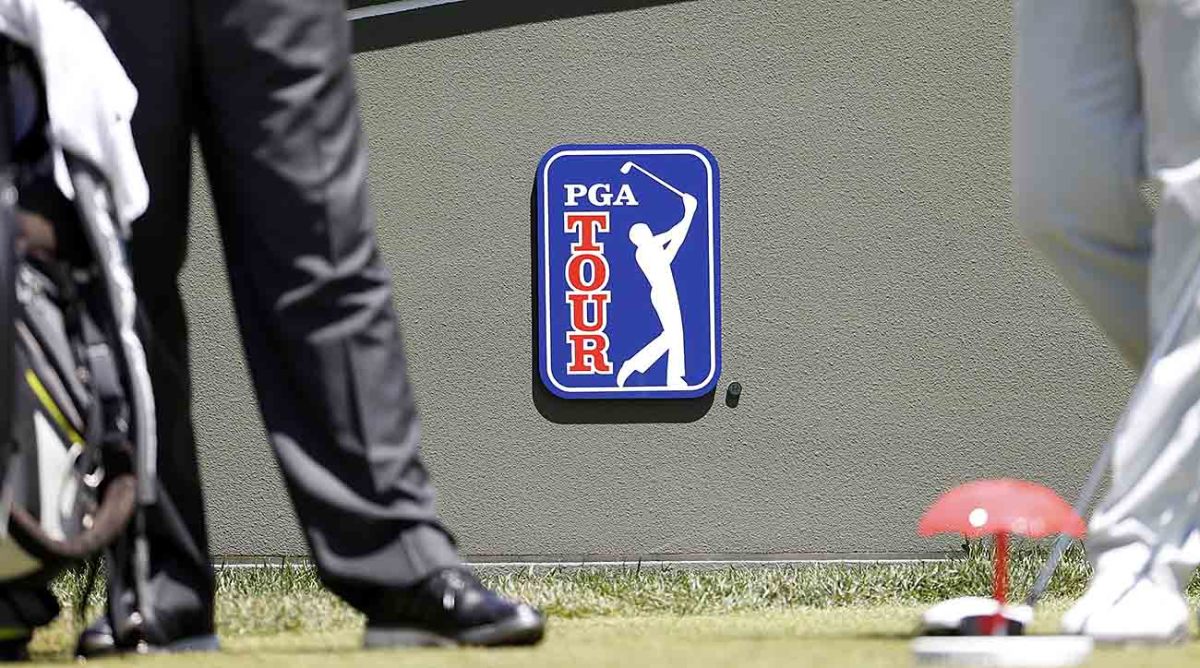With Partners at the Negotiating Table, the PGA Tour Is Back on Track to Winning Golf’s War

The PGA Tour Policy Board should have quintuple-spaced its memo to players Sunday, so everybody would know to read between the lines. The memo announced plans to “further negotiate with Strategic Sports Group,” one of the private-equity firms bidding to invest in the Tour, and continue discussions with Saudi Arabia’s Public Investment Fund. But it signaled something far more important:
The PGA Tour is back on track to winning golf’s war.
There is still a long way to go, and a lot to figure out. But the Tour is once again in position to secure billions of dollars in PIF money and put the future of LIV Golf in the Tour’s hands.
Strategic Sports Group is a consortium of investors that includes Mets owner Steve Cohen’s Cohen Private Ventures, Brewers owner Mark Attanasio, Redbird Capital’s Gerry Cardinale and Fenway Sports Group. The principals have billions of dollars and a track record of investing in sports teams—and have also shown a willingness and ability to work with PIF and other Middle East investors. Just 10 days ago, there was a report that PIF is interested in buying AC Milan from Redbird Capital. Last spring, PIF hired executives from Cohen’s Point72. Redbird’s media company, Redbird IMI, is based in the United Arab Emirates.
There is now a mutual interest from all parties to get a deal done with PIF:
- The Tour can bring in billions and neutralize the LIV threat. LIV Golf will likely exist in 2024, and the Tour could incorporate the team-golf aspect in some way down the road if it chooses, but LIV would no longer be a rival tour. The Tour can also work on establishing the $1 billion equalization pool that SI reported was on the table in July.
- Strategic Sports Group gets to invest in the Tour and form an alliance with the world’s largest sovereign wealth fund. News flash: Rich people like working with other rich people to get even richer.
- PIF gets a major investment in golf that has a better chance of success than the enormous sum it has spent to get a tiny audience for LIV. PIF also gets to progress toward its overarching goal of diversifying Saudi holdings with investments around the world. Every PIF investment makes the next one more likely, because it leaves other potential partners more comfortable working with PIF.
- PIF chairman Yasir Al-Rumayyan can get what he wanted all along: A place in golf’s inner circle.
- The Tour can form PGA Tour Enterprises to expand its reach. The cash infusion would open a wave of possibilities—including, to use one hypothetical example, buying the PGA Championship and Ryder Cup from the PGA of America.
When LIV signed Jon Rahm away from the Tour last Thursday, it was not just a major talent acquisition. It was a warning shot. If the Tour does not complete its agreement with PIF, LIV can keep signing stars and weakening the Tour. How much that affected the Policy Board’s meetings Friday and Saturday is open for debate. But it created an urgency to put agendas, grievances and hurt feelings to the side and do what is best for the Tour.

The moral and ethical ramifications of dealing with PIF are real. But the reality is that, until PIF is in business with the PGA Tour, it will be a threat to the Tour. Those discussions are expected to heat up very soon. The much-discussed Dec. 31 deadline for a deal is not a deadline at all; yes, the agreement expires then, but the two sides can mutually agree to extend it. The only practical implication of the Dec. 31 deadline was that it ensured LIV could not poach Tour members until then. But once the Tour and LIV agreed to delete the no-poaching portion of the agreement to appease the justice department, the Dec. 31 date was just a target.
The Policy Board took a roundabout path to getting here. When the Tour shocked its members with its framework agreement on June 6, it was a triumph disguised as a failure. The Tour got all lawsuits dismissed with prejudice, and laid the groundwork for commissioner Jay Monahan to decide the future of LIV. But because the negotiations were conducted in secrecy, players and even Policy Board members were angry about being excluded.
What happened next is telling. Former AT&T CEO Randall Stephenson resigned from the Policy Board, citing the Saudi Arabian government’s involvement in the murder of Jamal Khashoggi in his resignation letter. Stephenson has a prior relationship with Spieth, a longtime AT&T endorser, and in his resignation letter, he had also complained about the Tour’s “governance model” that left players and himself out of the loop.
The Policy Board added another seat for the players, giving players six of the 11 seats; that went to Tiger Woods. Board member Patrick Cantlay then led the charge to consider private equity funds as an alternative to PIF; part of the appeal was that this way, players would be the ones deciding the future of their tour. (As Sports Illustrated reported last week, Cantlay has been the driving force behind negotiations, with Woods and Jordan Spieth at his side. Spieth denied that Friday evening to the Associated Press; SI stands by its reporting.)
But all along, there was the possibility of partnering with a firm and PIF. Every group bidding understood that. (An earlier version of this column described Stephenson as part of Acorn Growth’s bid, which has been widely reported. The Associated Press has since reported that Stephenson refutes that he was directly involved with or stood to financially benefit from any bid.) The Cantlay faction spent the fall focused on private-equity firms, which Al-Rumayyan surely did not take well. That put the PIF deal in peril, and Monahan may have some work to do to get Al-Rumayyan to cede power like he was willing to do in June.
But the Rahm signing reinforced the point of having these conversations in the first place. The goal was not to solicit outside investors. It was not to partner with PIF. It was not to give stars control of the tour. It was to put the Tour on firmer footing as the premier men’s golf tour in the world. Jon Rahm is gone, but the Tour just took the first necessary step toward getting him back.
